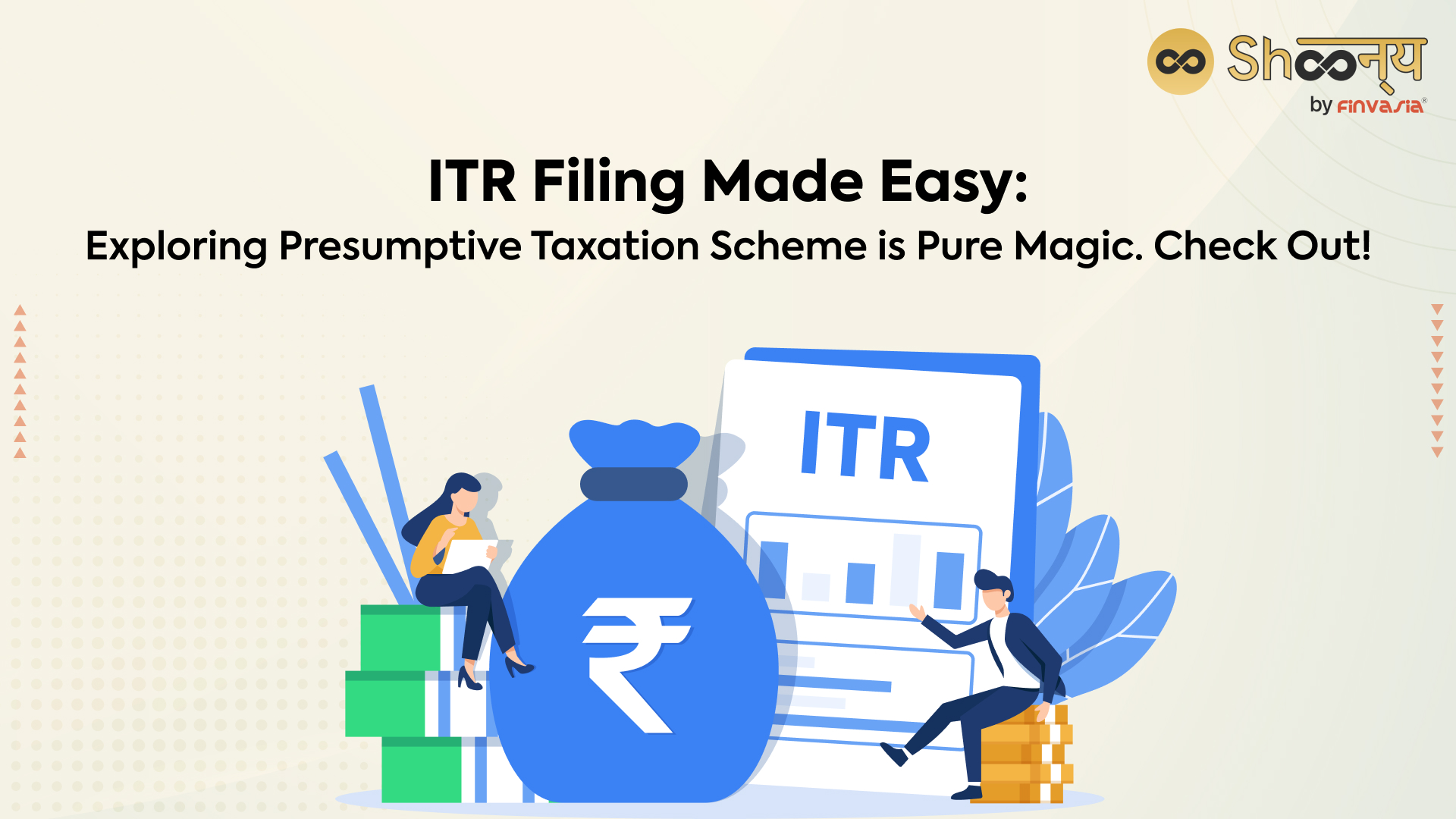Filing income tax returns can be a challenging task for many small businesses and professionals who lack the resources and knowledge for proper bookkeeping. To relieve such taxpayers, the government introduced the Presumptive Taxation Scheme (PTS), a simplified way to file income tax returns. This article explores what PTS entails, who can opt for it, its advantages and disadvantages, and the appropriate ITR form to use for filing returns under this scheme.
Key Highlights
- Simplified online ITR filing through Presumptive Taxation Scheme (PTS) for small businesses and professionals.
- PTS relieves taxpayers from the burden of maintaining books of accounts and undergoing audits.
- Calculating income based on presumptive factors makes tax filing easier for eligible individuals.
- Advantages of PTS include simplified tax compliance, eased tax return filing, and no quarterly advance tax payments.
- Limitations include a five-year commitment and limited deductions for business expenses.
- Use the ITR-4 (Sugam) form for filing returns under PTS.
- PTS offers a beneficial and hassle-free option for eligible taxpayers to file their income tax returns.
Who Can Benefit from Presumptive Taxation Scheme under Section 44AD?
The Presumptive Taxation Scheme is designed specifically for small businesses and professionals who find it difficult to maintain regular books of accounts and get them audited.
It is defined under three different sections of the Income-tax Act—44AD, 44ADA, and 44AE—each catering to different types of businesses and professions. Under these sections, taxpayers engaged in specific businesses or professions can file their ITR under PTS if they meet the prescribed turnover or gross receipt limits.
Calculating Income Under PTS
The PTS calculates income based on presumptive factors, making it easier for taxpayers. Business owners who opt for section 44AD have their income determined presumptively at 8 percent of the turnover or gross receipts of the eligible business. If payments are received via specific modes, the income is computed at a reduced rate of 6 per cent. For professionals choosing section 44ADA, income is presumed to be 50 per cent of the total gross receipts from their profession. Taxpayers can choose to voluntarily disclose a higher percentage of income if they wish.
Benefits of Choosing a Presumptive Taxation Scheme
The major advantage of opting for PTS is that taxpayers are relieved from the burden of maintaining books of accounts and getting them audited. It simplifies tax compliance and the return filing process. Moreover, those under PTS are not required to pay advance tax on a quarterly basis, unlike other taxpayers.
By online ITR Filing under PTS, they can pay 100 per cent of the advance tax by 15th March of the relevant financial year. Deductions under certain sections of the IT Act are allowed for PTS taxpayers, though they cannot claim any deductions for business expenses.
Limitations of the Presumptive Taxation Scheme
Once a taxpayer opts for PTS, they are required to follow the scheme for the next five consecutive years. If they fail to do so, PTS will not be available for the next five years from the year they opt out. Furthermore, taxpayers under PTS cannot claim deductions for specific business expenses, and there is no provision for carrying forward losses to subsequent assessment years.
Here, check out some common mistakes that you should avoid in online ITR filing.
Choosing the Correct ITR Form
For tax return filing under PTS, individuals should use the ITR-4 (Sugam) form, which is simpler compared to other ITR forms. The form is tailored to accommodate the specific needs of those under the Presumptive Taxation Scheme.
Conclusion
The Presumptive Taxation Scheme offers a simplified and beneficial approach for small businesses and professionals to file their income tax returns. By understanding the eligibility criteria, income calculation, advantages, and limitations of PTS, taxpayers can make informed decisions to ease their tax compliance process.
Source- moneycontrol.com
______________________________________________________________________________________
Disclaimer: Investments in the securities market are subject to market risks; read all the related documents carefully before investing.

